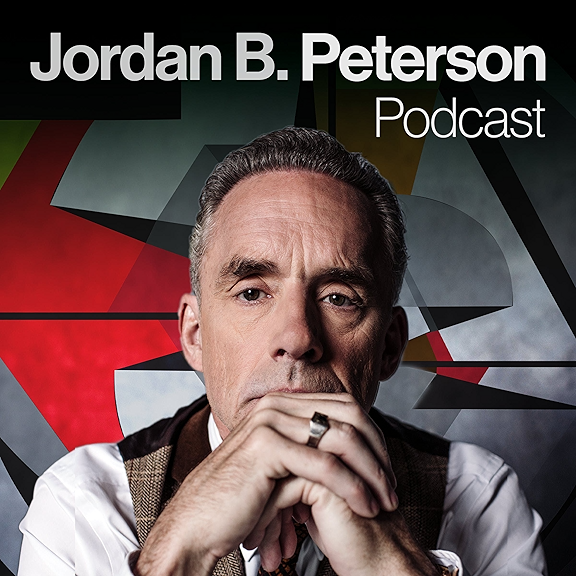
Man's Search for Meaning (Viktor E. Frankl)
Buy on Amazon: https://www.amazon.com/dp/B009U9S6FI?tag=9natree-20
Read more: https://mybook.top/read/B009U9S6FI/
#Existentialvacuum #Logotherapy #VictorFrankl #Findingmeaning #Suffering #Willtomeaning #Psychotherapy #Humanspiritresilience #MansSearchforMeaning
These are takeaways from this book.
Firstly, The Existential Vacuum, One of the core concepts introduced by Viktor Frankl in 'Man's Search for Meaning' is the existential vacuum - a state characterized by a sense of emptiness and meaninglessness. Frankl observed this phenomenon among his fellow concentration camp prisoners as well as in individuals living in the post-war era. The existential vacuum arises when a person's actions lack authentic personal significance and purpose. Frankl argues that in modern society, where traditional values and familial roles have often diminished, individuals find themselves with more freedom yet less direction. This condition leads to boredom, apathy, and various forms of neurosis. Frankl suggests that the quest for meaning is the primary intrinsic motivation in humans, and filling the existential vacuum requires finding purposive and value-driven goals beyond oneself. This topic not only provides insight into human psychology but also offers a lens through which we can examine our own lives and societal constructs.
Secondly, Logotherapy and Finding Meaning, Logotherapy, developed by Viktor Frankl, forms the heart of 'Man's Search for Meaning'. It is predicated on the belief that the primary drive in human beings is not pleasure (as Freud suggested) nor power (as Adler suggested), but the pursuit of what Frankl terms 'meaning'. Within the book, Frankl delineates three main ways through which one can find meaning in life: by creating a work or doing a deed; by experiencing something or encountering someone; and by the attitude we take towards unavoidable suffering. Logotherapy is distinctly forward-looking, urging individuals to orient their lives towards future goals and meanings, rather than being tethered to past traumas or failures. Frankl's therapeutic approach encourages people to identify and pursue meaningful life projects and attitudes, even in the face of life's unavoidable suffering. His insights on how to confront life's adversities and find personal significance within them have profound implications not only for psychotherapy but for the way we approach our existential concerns.
Thirdly, Suffering and Meaning, Viktor Frankl posits in 'Man's Search for Meaning' that suffering in itself is devoid of meaning, yet it provides a pivotal opportunity to find significance through the manner in which we choose to respond to it. Frankl's experiences in Nazi concentration camps highlighted how individuals facing unimaginable horrors could still assert a choice in their approach to suffering. This choice lies in the freedom to adopt an attitude towards suffering that can imbue it with meaning. For Frankl, meaning could be found in suffering itself, provided the individual saw their suffering as a task to bear with dignity, a chance to demonstrate courage, or an opportunity to become a testament to human resilience. The notion that our responses to suffering can transform it into a source of meaning is a powerful affirmation of human agency and spirit. Frankl’s insights teach us that while we may not have control over the sources of our suffering, we maintain the autonomy to decide how these challenges will define us.
Fourthly, The Role of Love in Finding Meaning, In 'Man's Search for Meaning', Viktor Frankl presents love as the highest pursuit that can provide life with meaning. Amid the desolate backdrop of concentration camps, Frankl discovered that thoughts of loved ones could provide unmatched strength. He argues that genuine love goes beyond the physical or emotional plane; it is the capability to see the potential in others,
Buy on Amazon: https://www.amazon.com/dp/B009U9S6FI?tag=9natree-20
Read more: https://mybook.top/read/B009U9S6FI/
#Existentialvacuum #Logotherapy #VictorFrankl #Findingmeaning #Suffering #Willtomeaning #Psychotherapy #Humanspiritresilience #MansSearchforMeaning
These are takeaways from this book.
Firstly, The Existential Vacuum, One of the core concepts introduced by Viktor Frankl in 'Man's Search for Meaning' is the existential vacuum - a state characterized by a sense of emptiness and meaninglessness. Frankl observed this phenomenon among his fellow concentration camp prisoners as well as in individuals living in the post-war era. The existential vacuum arises when a person's actions lack authentic personal significance and purpose. Frankl argues that in modern society, where traditional values and familial roles have often diminished, individuals find themselves with more freedom yet less direction. This condition leads to boredom, apathy, and various forms of neurosis. Frankl suggests that the quest for meaning is the primary intrinsic motivation in humans, and filling the existential vacuum requires finding purposive and value-driven goals beyond oneself. This topic not only provides insight into human psychology but also offers a lens through which we can examine our own lives and societal constructs.
Secondly, Logotherapy and Finding Meaning, Logotherapy, developed by Viktor Frankl, forms the heart of 'Man's Search for Meaning'. It is predicated on the belief that the primary drive in human beings is not pleasure (as Freud suggested) nor power (as Adler suggested), but the pursuit of what Frankl terms 'meaning'. Within the book, Frankl delineates three main ways through which one can find meaning in life: by creating a work or doing a deed; by experiencing something or encountering someone; and by the attitude we take towards unavoidable suffering. Logotherapy is distinctly forward-looking, urging individuals to orient their lives towards future goals and meanings, rather than being tethered to past traumas or failures. Frankl's therapeutic approach encourages people to identify and pursue meaningful life projects and attitudes, even in the face of life's unavoidable suffering. His insights on how to confront life's adversities and find personal significance within them have profound implications not only for psychotherapy but for the way we approach our existential concerns.
Thirdly, Suffering and Meaning, Viktor Frankl posits in 'Man's Search for Meaning' that suffering in itself is devoid of meaning, yet it provides a pivotal opportunity to find significance through the manner in which we choose to respond to it. Frankl's experiences in Nazi concentration camps highlighted how individuals facing unimaginable horrors could still assert a choice in their approach to suffering. This choice lies in the freedom to adopt an attitude towards suffering that can imbue it with meaning. For Frankl, meaning could be found in suffering itself, provided the individual saw their suffering as a task to bear with dignity, a chance to demonstrate courage, or an opportunity to become a testament to human resilience. The notion that our responses to suffering can transform it into a source of meaning is a powerful affirmation of human agency and spirit. Frankl’s insights teach us that while we may not have control over the sources of our suffering, we maintain the autonomy to decide how these challenges will define us.
Fourthly, The Role of Love in Finding Meaning, In 'Man's Search for Meaning', Viktor Frankl presents love as the highest pursuit that can provide life with meaning. Amid the desolate backdrop of concentration camps, Frankl discovered that thoughts of loved ones could provide unmatched strength. He argues that genuine love goes beyond the physical or emotional plane; it is the capability to see the potential in others,




















